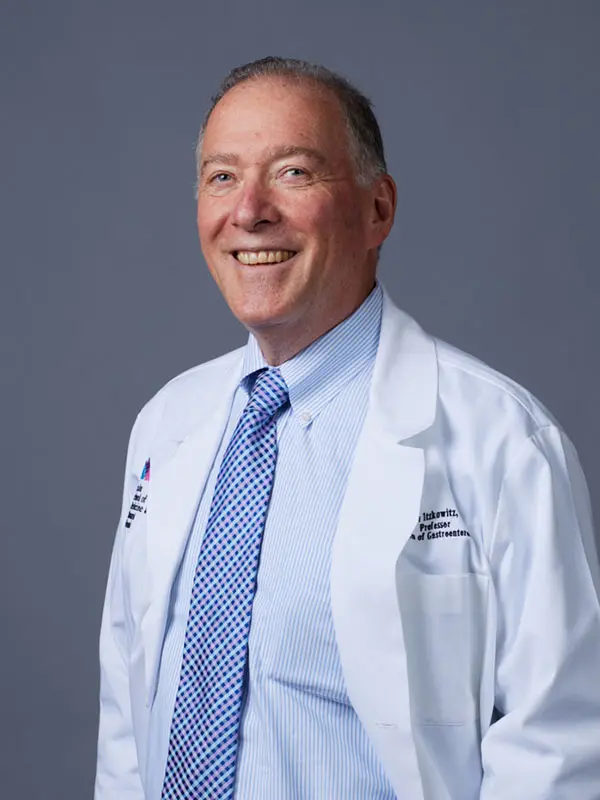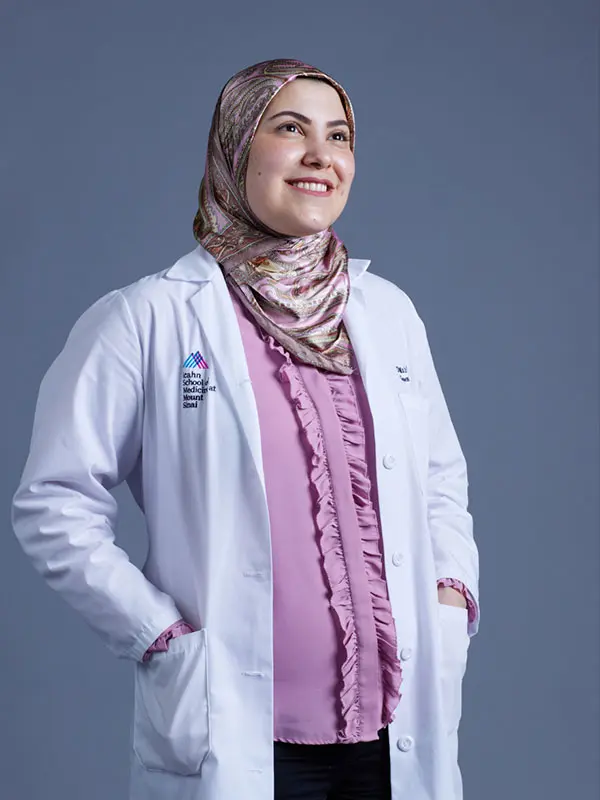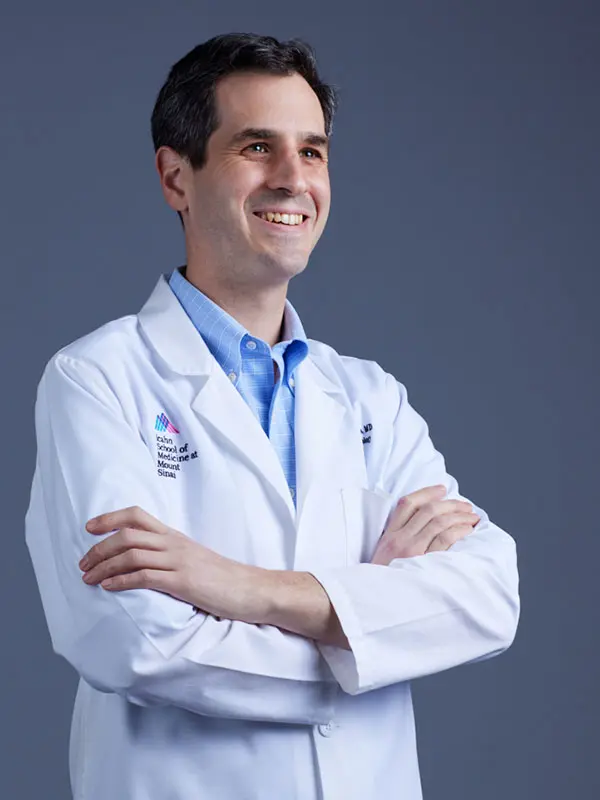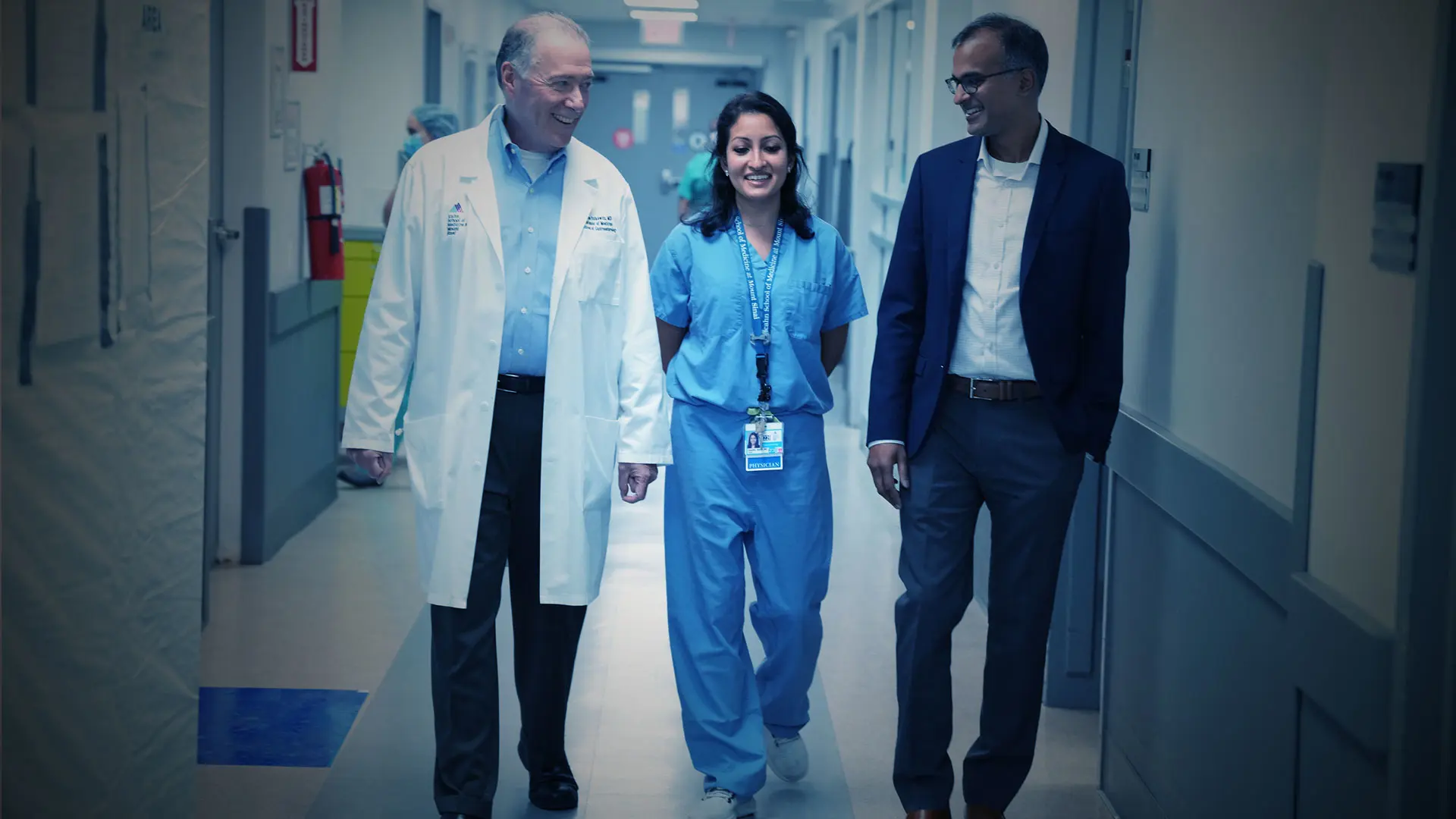To appreciate how much gastroenterology fellowship training has evolved at Mount Sinai, look at the class of 2021: In a field of medicine where an estimated 82 percent of practitioners are male, each of the fellowship program’s 12 positions that year was filled by a woman.
Responsible for that outcome was Steven Itzkowitz, MD, who stepped down in July 2022 after 23 years as program director, making him one of the longest-serving leaders of GI fellowship training in the country. The uber-competitive three-year fellowship in gastroenterology draws upon the resources of The Mount Sinai Hospital and its James J. Peters VA Medical Center affiliate in the Bronx to offer fellows a rich environment of faculty experts, patients and pathologies, and research opportunities.
“As program director, I intentionally looked for applicants who were women or people of color with different backgrounds underrepresented in medicine as a way to enhance diversity in the workforce,” says Dr. Itzkowitz, Professor of Medicine (Gastroenterology), Oncological Sciences, and Medical Education, at the Icahn School of Medicine at Mount Sinai. “And I’m particularly proud of the fact that several of our women trainees have published papers on gender bias in gastroenterology and made it a scholarly activity to talk about it publicly.”
Gender is only one way that Dr. Itzkowitz has left his imprint on a program that has changed during his tenure to mirror the growing complexity of the field and the intensity of skills and knowledge that trainees today need to graduate with proficiency in their specialty. For example, the fellowship program has doubled in size from two to four new fellows each year, and has been extended from two to three years of training. Nearly 20 years ago, it also became one of the first in the country to begin offering an optional fourth year for enhanced training in inflammatory bowel disease (IBD). And while other academic centers are required to protect six of the 36 months of the training regimen for scholarly activity and research, Mount Sinai long ago raised the ceiling to 18 months.
A fellowship program that not only doubled in size, but gained in diversity
“When I started in the program, I was determined to be a clinician,” recalls Maia Kayal, MD, a fellow from 2016 to 2019, now Assistant Professor of Medicine (Gastroenterology) at Icahn Mount Sinai and Director of the Comprehensive Pouch Program. “But as part of a very robust mentoring program across the subspecialties in GI, Dr. Itzkowitz connected me with Dr. Dubinsky (Marla Dubinsky, MD, Co-Director of the Susan and Leonard Feinstein IBD Clinical Center at Mount Sinai). From there, my interest in research snowballed, and it’s now a major part of my practice.”
Dr. Kayal also credits Dr. Itzkowitz with her decision to join the fellowship program after interviewing with him as part of a selection process that winnows a field of around 540 applicants each year down to a chosen four. “He was so warm and personable that by the time I finished the interview, I knew I needed to come to Mount Sinai,” she says.
Ryan Ungaro, MD, Associate Professor of Medicine (Gastroenterology) and a fellow starting in 2013, also sings the praises of the fellowship program and the national stature it has achieved under the leadership of Dr. Itzkowitz. “It’s rare to see someone who has shaped the lives and careers of as many gastroenterologists as Steve has, and not just in New York but across the country,” he observes. “He created an environment for fellows that was incredibly warm and collegial and where you could craft the direction of your career and know you had his full guidance and support.”
It's not surprising that Dr. Itzkowitz would take the most pride in the huge and diverse group of fellows he has shepherded over the years, many of whom have moved on to leadership roles as clinicians, researchers, and teachers at Mount Sinai and other institutions around the country. Statistically, 75 percent of the program’s graduates over the past decade have gone on to a fourth year of specialized gastroenterology training or joined a medical school faculty, while the remainder have entered private practice. “Trainees are very good at reading the tea leaves in our field,” Dr. Itzkowitz comments.
Looking back, he credits much of his success to the unflinching support of his GI division chiefs and, most importantly, Nicolia Grierson, who has served as Fellowship Coordinator for the past 16 years. As for his own future, Dr. Itzkowitz says he will pursue his busy clinical practice at Mount Sinai while pouring more time and energy into his passion for cancer research and diversity, equity, and inclusion. And, not coincidentally, “doing more to develop curricula and organize teaching around oncology for our gastroenterology fellows.”
Featured

Steven Itzkowitz, MD
Professor of Medicine (Gastroenterology), Oncological Sciences, and Medical Education

Maia Kayal, MD
Assistant Professor of Medicine (Gastroenterology)

Ryan Ungaro, MD
Associate Professor of Medicine (Gastroenterology)
